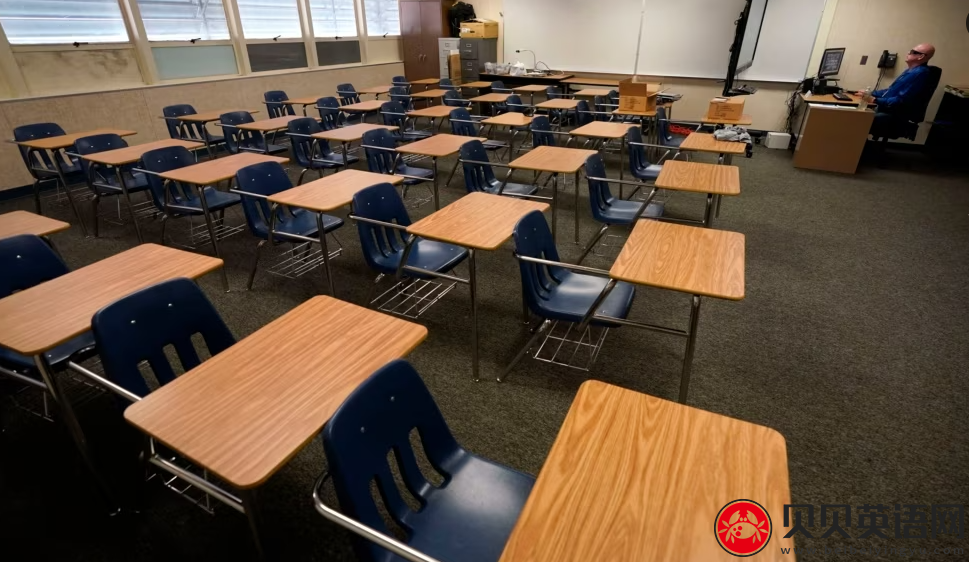欢迎访问贝贝英语网!
Students around the world suffered historic setbacks in reading and math during the COVID-19 pandemic. That information comes from results of the latest Program for International Student Assessment (PISA).
The PISA is an international comparative study of the scores of 15-year-old students on tests in reading, math and science. Nearly 700,000 students took part in the study.
PISA is administered every three years. The latest results showed an “unprecedented drop in performance” since 2018.
The PISA 2022 study was supposed to happen in 2021. But it was postponed because of the pandemic. The 2022 results were released on December 5. It is the first extensive study with data on how the pandemic has affected student performance around the world.
The study looked at 81 education systems. They include 37 member countries of the Organization for Economic Cooperation and Development (OECD). OECD has been administering the test since 2000.
Decreasing scores
The study found decreasing test scores in both rich and poor countries.
Andreas Schleicher is the director for education and skills at OECD. He said, “The world is no longer divided between rich and well-educated countries and poor and badly educated countries.”
The study found the average international math score fell by 15 points since 2018. Reading scores across participating countries fell by 10 points. The OECD considers 20 points to be equal to one year of learning. Scores did not change in a major way in science.
Albania saw the biggest decrease in math scores, with a massive 69-point decrease. That means Albanian students lost more than three years of learning. Many countries fell by more than one year’s worth of learning in math, including Germany, Iceland and the Netherlands.
Some Good News
Four places did improve their performance between PISA 2018 and 2022 in all three subjects: Brunei, Cambodia, the Dominican Republic and Taiwan.
Six East Asian education systems outperformed all other countries in math. Scores in Singapore were measurably higher than all other countries in all three subjects.
The math scores for U.S. students were about even with the international average. Science and reading were slightly higher.
Effects of the pandemic
The COVID-19 pandemic was a major reason for the worldwide score drops. But science and reading scores were dropping even before the pandemic. This suggests there are other reasons for the decrease.
Factors such as the level of investment in education, the social value and pay levels of teachers, and educational beliefs of students have all influenced educational results, the OECD’s Schleicher said.
Purpose of PISA
The PISA tests explore how well students can solve complex problems, think critically and communicate effectively.
The goal of PISA is to provide useful information to educators and policymakers on the strengths and weaknesses of their country’s education system.
OECD Secretary-General Mathias Cormann released the latest PISA results in Paris. He said, “PISA 2022 helps to identify the comparative strengths of education systems that have performed well despite recent shocks.”
Policymakers can use such information to consider reforms to education systems for a brighter, more financially successful future, Cormann added.
The study also reported on the fast-changing influence of technology on educational performance. The results found that moderate use of electronic devices in school is connected to higher performance.
Test your skills
Khan Academy is a popular test prep web site. It offers a free PISA quiz. You can see example questions and compare your math skills against the 15-year-old students from around the world who took the PISA 2022.
I’m Gena Bennett.
___________________________________
Words in This Story
setback–n. an event that delays progress
score–n. a piece of information, usually a number, that demonstrates the performance level of a skill
participating–adj. taking part in
factor–n. something that contributes to a result
despite—prep. without being affected by
quiz–n. a short, informal quiz

参考中文:
全球范围内的学生在COVID-19大流行期间在阅读和数学方面经历了历史性的挫折。这一信息来自最新的国际学生评估计划(PISA)的结果。
PISA是对15岁学生在阅读、数学和科学测试中的成绩进行国际比较研究的项目。将近70万名学生参加了这项研究。
PISA每三年进行一次。最新的结果显示自2018年以来出现了“史无前例的性能下降”。
原定于2021年进行的PISA 2022研究因大流行而推迟。2022年的结果于12月5日公布。这是一项首次具有关于大流行如何影响全球学生表现的广泛研究。
该研究涉及81个教育体系,包括经济合作与发展组织(OECD)的37个成员国。OECD自2000年以来一直在进行这项测试。
分数下降
该研究发现富裕和贫困国家的测试分数均有所下降。
OECD的教育与技能主管安德烈亚斯·谢莱赫表示:“世界不再分为富裕且受过良好教育的国家与贫穷且受教育水平低的国家。”
该研究发现国际数学平均分数自2018年以来下降了15分。参与国的阅读分数下降了10分。OECD认为20分相当于一年的学习。科学方面的得分没有发生重大变化。
阿尔巴尼亚的数学分数下降最多,大幅减少了69分。这意味着阿尔巴尼亚学生失去了三年以上的学习时间。许多国家的数学分数下降了一年以上,包括德国、冰岛和荷兰。
一些好消息
在PISA 2018和2022之间,在所有三个科目中提高了性能的有四个地方:文莱、柬埔寨、多米尼加共和国和台湾。
六个东亚教育体系在数学方面表现优异,得分超过其他所有国家。新加坡的得分在所有三个科目中都明显高于其他国家。
美国学生的数学分数大致与国际平均水平相当。科学和阅读稍微更高。
大流行的影响
COVID-19大流行是全球分数下降的一个主要原因。但甚至在大流行之前,科学和阅读分数就在下降。这表明存在其他导致下降的原因。
OECD的谢莱赫表示,投资于教育的水平、教师的社会价值和薪水水平,以及学生的教育信仰等因素都影响了教育结果。
PISA的目的
PISA测试探讨了学生解决复杂问题、批判性思维和有效沟通的能力。
PISA的目标是向教育工作者和决策者提供有关他们国家教育系统优点和缺点的有用信息。
OECD秘书长马蒂亚斯·科尔曼在巴黎发布了最新的PISA结果。他说:“PISA 2022有助于确定尽管最近受到冲击,但教育系统表现良好的比较优势。”
决策者可以利用这些信息考虑对教育系统进行改革,以迎接更加光明和经济成功的未来,科尔曼补充说。
该研究还报告了技术对教育绩效产生快速变化影响的情况。结果发现,在学校中适度使用电子设备与更高的表现有关。
测试你的技能
可汗学院是一个流行的测试准备网站。它提供免费的PISA测验。您可以查看示例问题,并与参加PISA 2022的全球15岁学生比较您的数学技能。
我是吉娜·贝内特。